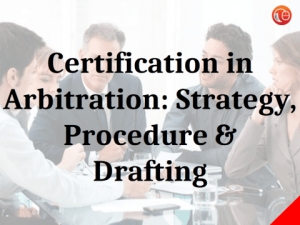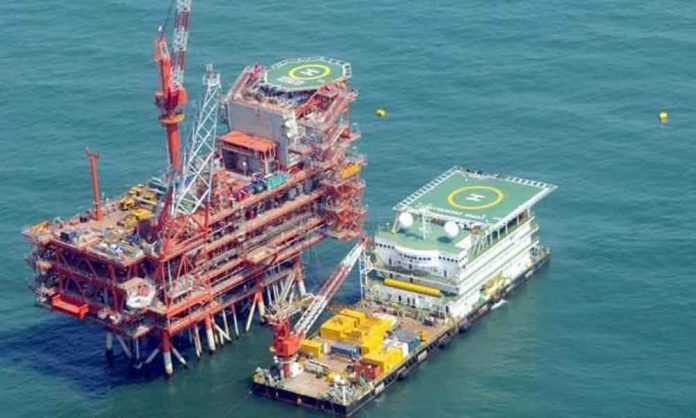This article is written by Nandini Shivhare, pursuing a Certificate Course in Arbitration: Strategy, Procedure and Drafting from Lawsikho.com. Here he discusses “Challenges for Arbitration in India.”
Table of Contents
Introduction
The Indian state-owned Oil and Natural Gas Corporation (ONGC), which previously operated the fields, discovered two adjacent offshore oil fields, the Panna-Mukta oil field and the Tapti gas field to the northwest of Mumbai, which was previously operated by ONGC. In February 1994, a Reliance-Enron group was awarded a 25-year lease on the oil field as a result of a privatisation initiative.
A production-sharing agreement was used to award the lease. Depending on the investment multiple, the Indian government would earn a variable proportion of profit. In December 1994, the field was taken over by a joint venture made up of ONGC (40%) Enron (30%), and Reliance (30%).
British Gas (BG) paid $350 million for Enron’s 30% stake in the Panna-Mukta and Tapti fields in 2002. The other two stakeholders, ONGC with 40% and Reliance with 30%, remained the same. BG took over as operator in place of Enron at first. However, there was a disagreement between the partners over how the field should be operated, with BG desiring dominance and the two Indian corporations demanding more equal control.
The Panna-Mukta and Tapti field Joint Venture’s Production Sharing Contracts (PSC) with the Government of India for the Panna-Mukta and Tapti fields, which were signed in 1994, expired on December 21, 2019. In 2016, the Tapti fields halted production, and the Tapti process platform facilities were given over to ONGC. The Panna-Mukta and Tapti fields Joint Venture is now decommissioning and restoring residual Tapti infrastructure, comprising five unmanned platforms and in-field pipelines, as part of India’s first offshore Decommissioning and Site Restoration project. Even after the Panna-Mukta handover, the Tapti Decommissioning and other commercial activities will continue in BGEPIL.
What is arbitration all about?
First things first Section 2 in The Arbitration And Conciliation Act, 1996 defines Arbitration as a method in which a disagreement is referred to one or more arbitrators who render a binding ruling based on the parties’ agreement. Instead of going to court, the parties choose arbitration as a private dispute settlement mechanism.
When the parties agree to arbitrate their disagreement, they agree to have their rights and duties decided by a neutral panel. Arbitration is not the same as mediation or conciliation, despite the fact that they are both forms of alternative conflict resolution. A mediator or conciliator can only provide recommendations, and the parties must decide whether or not to follow them. An arbitration panel, on the other hand, has the authority to make binding decisions for the parties. One of the benefits of arbitration is that enforcing an award in another nation is often easier than enforcing a court judgment. However, enforcement regimes differ, and it is critical to consider the likelihood of enforcement while considering whether to arbitrate a dispute and, if so, how to do so before investing too much time and money. This is especially true if one of the most essential elements in arbitrating is cash in the bank.
Bone of contention
Disagreements emerged in December 2010 about royalty’s payment and reimbursement, and service tax, and the Comptroller and Auditor General’s performance audit, prompting Reliance to use the international arbitration clause. The government had contested the arbitrability of the disputes at the outset of the arbitration.
In December 2010, Reliance and British Gas filed an arbitration request requesting an increase in field operation costs that they may deduct from oil and gas sales as expenses before declaring profit to be split with the government. The contract stipulates a cost recovery of $545 million in the Tapti gas field and $577.5 million in the Panna-Mukta oil and gas production. Reliance and BG want the cost provision in Tapti to be increased by $365 million and in Panna-Mukta by $62.5 million.
The extent of an audit by the government’s Comptroller and Auditor General, as well as the increase in royalties payable to the government, service tax, and the scope of an audit by the government’s Comptroller and Auditor General, are some of their other grievances. The government’s counterclaim includes a $443 million profit loss due to the incorrect income tax rate being used in estimating the government’s profit petroleum, as well as a $5.7 billion production loss due to the failure to complete contracted development.
The tribunal found in September 2012 that it did have jurisdiction to rule on royalty, and CAG audit problems, and ordered the government to refund the RIL-BG partnership $11.4 million. The government’s argument for the arbitrability of the disputes was rejected by the arbitral panel in December 2009. The government subsequently filed a complaint with the Delhi High Court, claiming that the arbitral tribunal’s December 2012 judgment should not be upheld because the contracts were signed and performed in India.
Cost recovery dispute
In October 2016, the arbitration tribunal pronounced a Final Partial Award that went largely in favour of the government,
- It backed the government’s position that the profit from the fields should be computed after deducting the current 33 percent tax rate, rather than the previous 50 percent rate.
- The contract’s cost recovery is set at $545 million in the Tapti gas field and $577.5 million in the Panna-Mukta oil and gas field, according to the court. The two companies requested an increase in cost provision of $365 million in Tapti and $62.5 million in Panna-Mukta.
- It said that royalties have to be computed after the marketing margin was added on top of the wellhead price of natural gas. following which the oil ministry computed the three oil companies’ liability and directed them in May 2017 to pay up the differential share of profit and royalty of $3.9 billion. The companies refused to pay, saying the award had been challenged in an English Court and the liability not yet quantified by the tribunal.
The government, in turn, went to the Delhi High Court to enforce the award, and also urged the court to restrain the sale of assets by Reliance until the money needed to pay up its liability in the PMT case is secured. The Centre’s estimate of liability has now jumped to $4.5 billion after including interest that must be jointly paid by Reliance, Shell, and ONGC in proportion to their stakes in the PMT fields. Based on an October 2016 partial award of an international arbitration tribunal over the recovery of certain costs from the sale of oil and gas produced from the Panna-Mukta and Tapti fields, the government had sought $3.5 billion in dues from Reliance and Shell-owned BG Exploration & Production India Ltd. The two firms had appealed the partial award to the English High Court in 2016.
The English High Court had already asked the tribunal to re-examine some concerns, according to sources with first-hand knowledge of the development. In 2018, the tribunal delivered a new decision upholding the two corporations’ entitlement to recover losses. The government objected to this award. The government had used the partial award in 2016 to demand $3.5 billion from Reliance and Shell, as well as to obstruct Reliance’s $15 billion transactions with Saudi Aramco, claiming that the business owed it money.
In the Delhi High Court, Reliance and Shell argued that the government’s petition was an abuse of process because “no arbitration ruling has established any ultimate responsibility of dues on the firm.” On October 12, 2016, the Arbitration Tribunal hearing disputes under the Panna-Mukta and Tapti (PMT) Production Sharing Contracts (PSCs) between BG Exploration & Production India Ltd (Shell) and Reliance with the Government of India issued a Final Partial Award. The English High Court asked the Arbitration Tribunal to re-examine key issues after the two corporations disputed parts of the 2016 Award.
The Arbitration Tribunal re-examined the issues and issued its Final Partial Award on October 1, 2018, finding that some expenditures incurred by two corporations were agreed to be cost recoverable by the Indian government. On five issues, the Indian government disputed the 2018 Award. The two corporations also filed a challenge on one point, claiming that some fees were not recoverable as determined by the Arbitration Tribunal. According to them, an English Court has set a consequential hearing for February 28, 2020, to issue further directions in the case.
What does the law say about choosing a foreign seat of arbitration?
The Delhi High Court held in Dholi Spintex Pvt. Ltd. v. Louis Dreyfus Company India Pvt. Ltd. Held that two Indian parties can choose a foreign law as the law governing the arbitration between them, recognising that an arbitration agreement between parties is an agreement independent of the substantive contract. The Court also reaffirmed the legal position on courts’ restricted role in international arbitrations. Further Section 28 The Arbitration And Conciliation Act, 1996 supplies emphasis on rules applicable to the substance of the dispute.
In line with the pro-arbitration stance taken by courts across the country, the Delhi High Court has recognised and prioritised the importance of party autonomy in the sphere of arbitration in this case. In GE Power Conversion India Private Limited v. PASL Wind Solutions Private Limited, a single judge bench of the Gujarat High Court decided on identical lines, allowing two Indian parties to pick a foreign seat of arbitration.
Conclusion
Shell and Reliance had earlier claimed that the tribunal’s 2016 decision settled certain principled concerns. It did not award any monetary sums until all of the problems were resolved. The tribunal will determine the amount of damages, if any, after all, problems have been resolved. The two firms disputed some aspects of the 2016 verdict in an English court, which upheld some of their arguments and ordered the arbitration tribunal to re-examine those portions of the 2016 verdict. After reconsidering the case, the tribunal awarded a new partial award in December 2018 that favoured the two corporations. The government unilaterally estimated certain amounts based on its interpretation of the 2016 award, which the government contends are payable by Oil & Natural Gas Corporation, British Gas and reliance while this case was pending in the English Court.
References
- https://www.business-standard.com/article/economy-policy/ongc-to-get-panna-mukta-fields-from-shell-reliance-after-25-years-119122001611_1.html
- https://www.wipo.int/amc/en/arbitration/what-is-arb.html
- https://www.stewartslaw.com/expertise/international-arbitration/arbitration-process/
- https://www.mondaq.com/india/arbitration-dispute-resolution/1035962/can-two-indian-parties-choose-foreign-law-to-govern-their-arbitration-agreement-the-delhi-high-court-answers-in-the-affirmative#:~:text=The%20Court%20held%20that%20two,by%20the%20laws%20of%20England.
- https://www.business-standard.com/article/companies/shell-ril-win-in-english-hc-against-govt-in-pmt-oil-gas-field-dispute-120021301571_1.html
- https://economictimes.indiatimes.com/news/politics-and-nation/pmt-gas-fields-case-sc-junks-centres-plea-against-arbitrator/articleshow/49063038.cms
- https://www.thehindu.com/business/Industry/govt-challenges-panna-mukta-field-arbitration-before-english-high-court/article34743675.ece
Students of LawSikho courses regularly produce writing assignments and work on practical exercises as a part of their coursework and develop themselves in real-life practical skills.
LawSikho has created a telegram group for exchanging legal knowledge, referrals, and various opportunities. You can click on this link and join:
 Serato DJ Crack 2025Serato DJ PRO Crack
Serato DJ Crack 2025Serato DJ PRO Crack










 Allow notifications
Allow notifications


